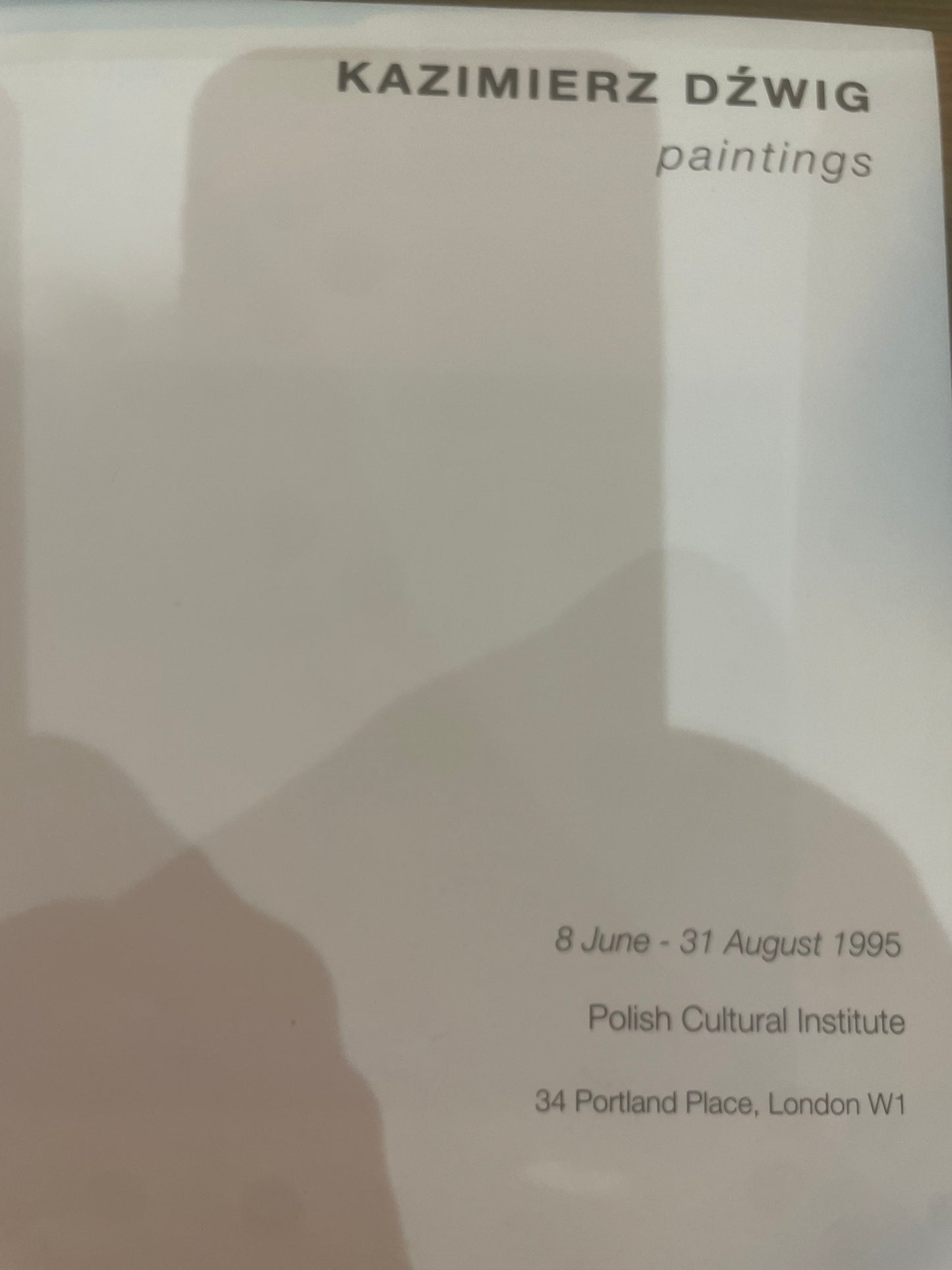Kazimier Zwig Abstract Oil on canvas
Couldn't load pickup availability
Kazimier Zwig
Abstract Oil on canvas
100 x 83cm
Exhibition Catalogue included.
Condition: There is some light abrasions due to shrinkage
The paintings of Kazimierz Tadeusz Dzwig present a wide spectrum of artistic achievement, spanning the years from his early landscapes to the contemplative compositions of his mature style. Dzwig was born and educated in Krakow and was one of the Polish artists who settled in Britain during the post-war years. He had barely emerged from childhood when Poland was invaded by the Germans and he was placed in a forced labour camp near Kraków. In time he escaped and made his way to Northern Italy where he joined a group of partisans fighting against the Fascist Régime. When the Allied Forces occupied Italy he joined the Polish Army and soon obtained leave to study painting with a group of other Poles at the Academy of Fine Art in Rome.
Dzwig drew and painted there for about one year and in 1946 came with the Army to England where he decided to settle and to continue his studies. He obtained a service grant to study at Sir John Cass' College in London. It was there that he met a fellow student, Mary who was to become his wife and life companion. The Art School was run by Bainbridge Copnall, a painter and sculptor who later became President of the Royal Society of Sculptors. Copnall had been a colonel in the VIlI Army during the war and had great regard and sentiment for the Poles. The school at that time had about 40 Polish students, mostly ex-service men and women some of whom later formed the nucleus of an artistic community in London.
Dzwig also joined the studio of Henryk Gotlilb, an eminent Polish artist who taught painting to a select group of students. The influence of Gotlib and the friendship between the older and the younger artist remained a lasting source of inspiration for D<wig during the late nineteen forties and the early fifties.














